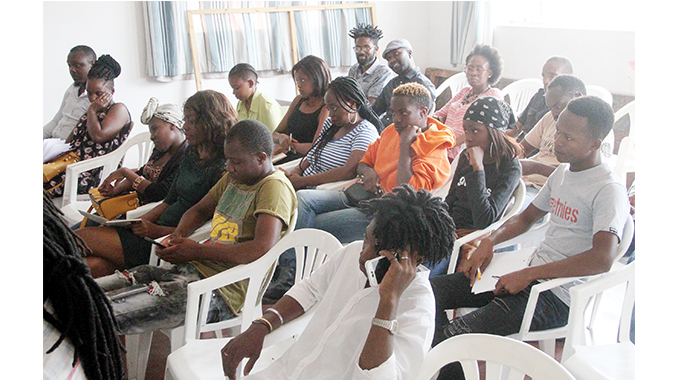The Lockdown Creative Writing Challenge: An idea is never final

Christopher Mlalazi
Last week we left off by touching on a very interesting concept in creative writing — that a story idea in progress is never final, and today we will try to thrash this one too in our enlightening lockdown creative writing challenge for budding writers.
At this point let me stress again that these ideas that I am sharing are not just coming from empty space, but they are tried and tested by none other than yours truly, and so far they have been working for me, and
I hope that they will for you too in our never ending quest to write good and entertaining stories, which are also repositories for any people’s cultural heritage.
But another reminder.
When you are being given tips on creative writing, it’s not to say that you must try to use all of them, but rather, just try to understand what you can, and then attempt to use what you think works for you, and the rest, just let it go through one ear and out through the other.
We will go back to our topic.
A story idea is never final until the last word has been written, and the story sent to a publisher.
Even then, we might also say that even if the story has been sent, it could not have been final, as if one could be given a chance to take it back, you would discover that if you were to re-write it, you might come with a completely different resolution than the present one.
For a fact, there are some writers who have published books, and then go on to think that maybe I could have written this or that another way, but then it would be too late, as there is no re-writing a story that is already cast in stone, that is, between the covers of the book.
This brings us to our point again, but now in the actual writing process, and the plotting of the concept.
There are many ways in which writers achieve this, that is the plotting part.
Some prefer to go in what I would like to term the almost academic way, in which a story is plotted from introduction to resolution before the actual writing takes place.
What this is, is that you lay down a rigid frame first, and then go on to fill it up. In this instance, you already know what you are going to write about, and that plot can be unchanging.
This works for some writers, but I have never tried it as it does not work for me.
And now we talk about the other strategy. This involves what I many term as ‘just writing.’ You start writing without any prior planned plot, and just let the story take you wherever it wants to.
This is akin to the example I provided in the last instalment, of a traveler going from point A to B, but who gets sidetracked along the way by some new attraction, and instead of proceeding on to point B, suddenly veers off on a tangent to a new point, that is point C.
This is what is called an organically growing story — it is growing naturally, and without any prior plans.
A golden rule is that when you are using this strategy to write, always be on the lookout for ideas that grow from the main one and seem to veer off in new unexpected directions.
Instead of being rigid and throwing away these new branching off ideas, always take your time to be flexible and follow and see where they are leading you too — maybe their direction is actually the story you should be writing, and not the one you have been trying to write all along that is giving you sleepless nights.
But another word of caution. It is also advisable not to try to follow all new ideas that seem to crop up along the main track of your story — it is a delicate balancing act, but always best left to the individual to decide upon.
Writing a story requires time and a lot of patience. It also requires a lot of testing of all the ideas within the main body of the story under construction. It’s a continual process of move forward, retreat, forward, retreat, forward again – until there comes a time when the envisaged story begins to take shape.
For this installment we will end here, and for the next one, we will discuss a concept that I call “layering” in creative writing, which is another interesting one, maybe something you are already executing as you write, but have never consciously thought about it.
And for now, stay safe, and stay writing!









Comments